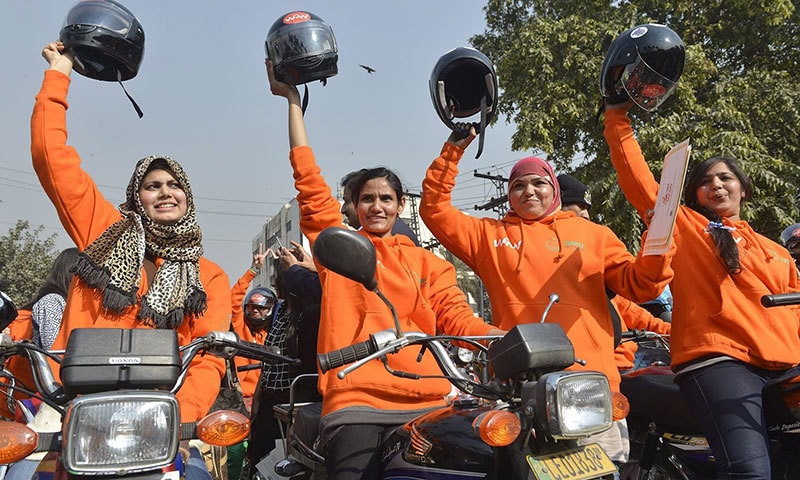Women on Wheels = 'Beyhayai' on wheels?

The Punjab government’s Women on Wheels programme was initiated on January 10 by a rally of 150 women trained by the Special Monitoring Unit on Law & Order and City Traffic Police.
The WoW programme took off but not without condemnations on social media littered mainly with charges of “bayhayai”.
Just a few representative samples include:



That the sight of women on motorbikes is obscene to some in a country where hundreds of children are horrifically abused for years and forgotten spells volumes about the twisted sense of outrage by many in Pakistan.
It is also mind boggling how the sight of women with men on motorbikes isn’t “beyhayai” but women alone on motorbikes definitely is.
Why?

There is little doubt that this line of thought owes itself to the deep-seated scandalisation of female presence and participation in public spaces in Pakistan.
This is a scandal anytime there is a breach of the chaar diwari — a concept set in values of honour, which frankly holds little relevance in the 21st century but nonetheless limits women to the boundaries of the private sphere.
This 'scandal' is part of the bigger problem women in Pakistan face in relation to public spaces, which are culturally set as 'alien territories' for them. Public spaces are seen as exclusive male domains — external and separate from the domestic domain to which women 'belong'.
Take a look: Why do women walk so briskly in public?
Any breach of this mobility by women is then either fraught with risks such as harassment — which is rationalised as part-and-parcel of stepping into the ‘male realm’ of public spaces, in which female presence and visibility may be treated as cultural anomalies.
It is this view that often promotes hostile conditions for women when they do step into public spaces — ranging from roads, educational institutions to work places — because "that isn't where they are supposed to be".
Public spaces in Pakistan are not a distant realm for women, they are not off-limits to us.
And that is precisely why an initiative such as Women on Wheels is necessary in this country because it resists this myopic idea by attempting the normalisation of female engagement in public spaces.
The author holds an MA in South Asian Studies from Columbia University, and currently teaches history and political science at the Lahore University of Management Sciences., She writes about socio-political affairs on her blog hafsakhawaja.wordpress.com.
She tweets @Hafsa_Khawaja















































